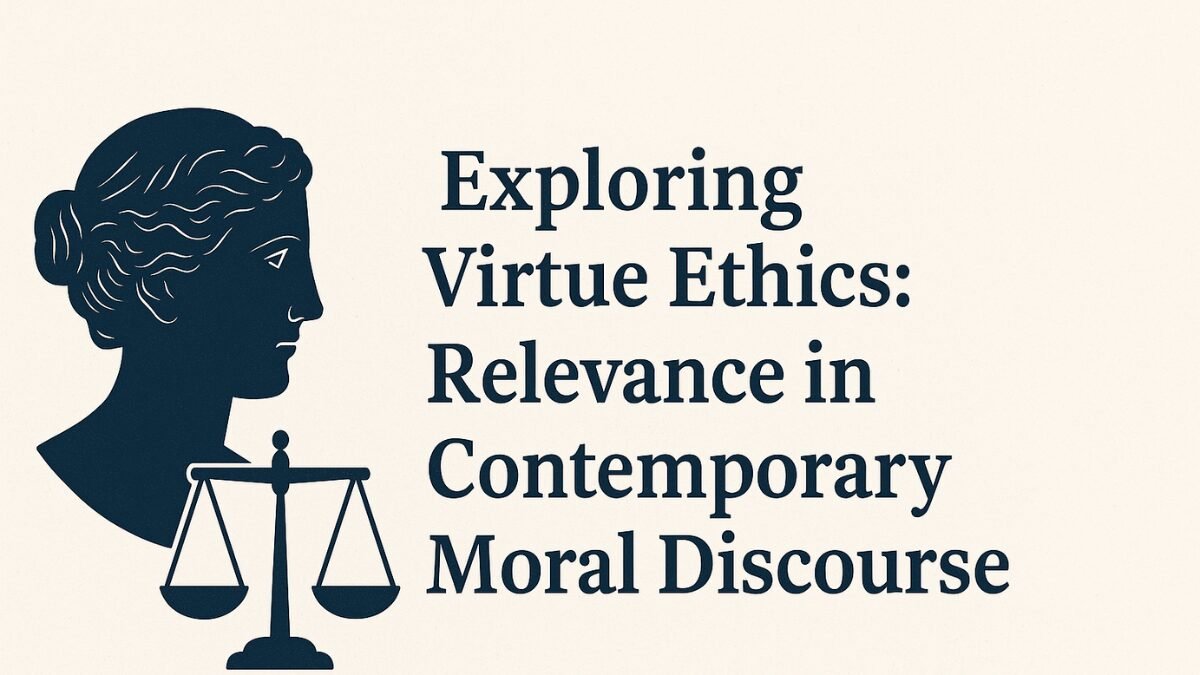Explore The Common Good Approach: A Comprehensive Guide to Ethical Philosophy in 2024, highlighting its core principles, practical applications, and why it matters in modern society. Includes FAQs and insights.
also read: Navigating Moral Gray Areas: Strategies for Ethical Decision-Making
Introduction
Ethics, at its core, is about making decisions that reflect our values and responsibilities. In 2024, as societies worldwide face increasing complexity in politics, technology, and cultural integration, ethical frameworks are more crucial than ever. Among these, The Common Good Approach stands out as a time-tested, community-centered philosophy that calls for decisions benefiting everyone—not just a select few. This article explores this powerful ethical framework, making it simple to understand and relevant to today’s challenges.
What is The Common Good Approach?
The Common Good Approach is a moral philosophy rooted in the idea that ethical actions contribute to the well-being of all members of society. Rather than focusing solely on individual rights or outcomes, it emphasizes the importance of shared values, social systems, and collective benefit.

At its essence, the approach seeks to answer the question: What decision or policy will benefit the most people in the long run?
Originating from ancient philosophical traditions like those of Plato and Aristotle, the concept was refined through Catholic social teaching and continues to influence political theory, business ethics, and public policy.
Core Principles of the Common Good Approach
The Common Good Approach is built upon several foundational ideas that distinguish it from other ethical theories:
1. Interconnectedness
People are not isolated beings. Our actions affect others in direct and indirect ways. The approach recognizes the deep interdependence of human beings and promotes decisions that account for collective welfare.
2. Shared Responsibility
Every individual has a role in upholding the common good. Whether through civic duty, corporate accountability, or environmental stewardship, this approach demands active participation.
3. Justice and Equality
The common good cannot exist in a society plagued by inequality. Access to education, healthcare, and opportunity must be fair and inclusive for all.
4. Respect for Human Dignity
Every person deserves respect. Decisions must honor each individual’s intrinsic worth while promoting societal cohesion.
The Common Good Approach vs. Other Ethical Theories
| Ethical Theory | Key Focus | Primary Question Asked |
|---|---|---|
| Utilitarianism | Consequences and outcomes | What action leads to the greatest happiness for the most? |
| Deontology | Duties and rules | Is this action aligned with moral duties or laws? |
| Virtue Ethics | Character development | Is this action consistent with a virtuous life? |
| Common Good Approach | Community welfare and justice | Will this benefit society as a whole over the long term? |
Unlike utilitarianism, which may sacrifice minority interests for the majority’s benefit, the Common Good Approach balances collective welfare with justice and equity, ensuring no group is left behind.
Application in Modern Society
In 2024, the Common Good Approach is more relevant than ever. From global crises to technological disruptions, decisions must consider their broader social impact.
In Government and Public Policy
Governments adopting the common good philosophy design policies that uplift underserved communities, preserve the environment, and ensure public health. For example, universal access to clean water or education policies that reduce inequality are aligned with this approach.
In Business Ethics
Corporations are increasingly expected to serve more than just shareholders. A company that embraces this philosophy invests in sustainable practices, treats workers fairly, and supports local communities—creating value for all stakeholders.
In Healthcare
During public health crises, such as pandemics, the Common Good Approach justifies vaccine mandates or lockdowns as necessary to protect vulnerable populations—even when such policies are inconvenient for some individuals.
Challenges and Criticisms
Although noble in intent, the Common Good Approach is not without its challenges:
1. Conflict of Interests
What benefits one group may disadvantage another. Balancing the good of the many with individual rights requires delicate judgment.
2. Defining the “Common Good”
Societies are diverse. Different cultures, religions, and communities may disagree on what constitutes the common good, making consensus difficult.
3. Risk of Authoritarianism
In extreme cases, this philosophy can be misused to justify suppressing dissent under the guise of collective benefit. Ethical vigilance is necessary to prevent abuse.
A Real-World Case Study: The Climate Crisis
The global response to climate change illustrates the power and complexity of the Common Good Approach. Actions such as investing in renewable energy, regulating emissions, and supporting climate justice movements are based on the understanding that planetary health is a shared responsibility.

Though these decisions might restrict some industries or lifestyles in the short term, they serve the long-term interests of humanity, aligning with the common good principle.
Implementing the Common Good Approach in Daily Life
You don’t need to be a policy-maker to practice the Common Good Approach. Here’s how you can embrace it in 2024:
- Support Local Initiatives: Buy from local businesses, attend town hall meetings, and volunteer in community programs.
- Educate Yourself: Understand issues affecting your community, from housing to healthcare access.
- Practice Ethical Consumerism: Choose brands that align with fair labor practices and environmental sustainability.
- Advocate for Inclusivity: Ensure marginalized voices are heard and respected in your workplace, school, or neighborhood.
By making choices that benefit not just ourselves but our communities, we help shape a society grounded in compassion and justice.
Benefits of the Common Good Approach
The continued relevance of this ethical framework lies in its long-term societal advantages:
- Promotes Social Harmony
By fostering mutual respect and cooperation, it reduces conflict and inequality. - Builds Resilient Communities
Shared goals and collective action create stronger civic bonds. - Supports Sustainable Growth
Economic, environmental, and social decisions are more sustainable when designed for everyone’s benefit.
Frequently Asked Questions
1. How does the Common Good Approach differ from socialism?
While both emphasize community welfare, the Common Good Approach is a moral framework, not a political or economic system. It doesn’t mandate government control but encourages ethical choices for societal benefit.
2. Can individual rights be protected under this approach?
Yes. The Common Good Approach values both individual dignity and collective welfare. Ideally, one doesn’t come at the expense of the other.
3. Is this approach relevant in capitalist societies?
Absolutely. Many businesses and institutions within capitalist systems adopt this approach through Corporate Social Responsibility (CSR) and sustainability efforts.
4. Who are major philosophers behind this concept?
Plato, Aristotle, Thomas Aquinas, and John Rawls all contributed to the philosophical foundation of the Common Good Approach.
5. What are modern examples of common good policies?
Universal healthcare, public transportation, and environmental regulations are all examples that serve the collective good.
6. Can technology serve the common good?
Yes. Ethical tech design that prioritizes privacy, equity, and accessibility reflects this philosophy.
7. Is the Common Good Approach religious in nature?
Although rooted in religious traditions like Catholic social teaching, the philosophy can be embraced in secular ethics.
8. How is it taught in education today?
Ethics courses, civic education, and philosophy programs incorporate it to teach responsible decision-making.
9. Can this approach help reduce polarization?
Yes. By focusing on shared interests rather than differences, it promotes unity and mutual understanding.
10. Is it applicable to international relations?
Definitely. Policies on climate change, refugee support, and global health can be guided by common good principles.
Conclusion
The Common Good Approach: A Comprehensive Guide to Ethical Philosophy in 2024 reveals a timeless yet urgently needed framework for decision-making in today’s world. It reminds us that ethical behavior isn’t just about personal gain or abstract rules but about improving the well-being of our communities and shared spaces.
As we face increasingly global challenges, the Common Good Approach empowers us to act with integrity, compassion, and foresight—qualities that form the ethical backbone of any thriving society.
also read: Navigating Moral Gray Areas: Strategies for Ethical Decision-Making










